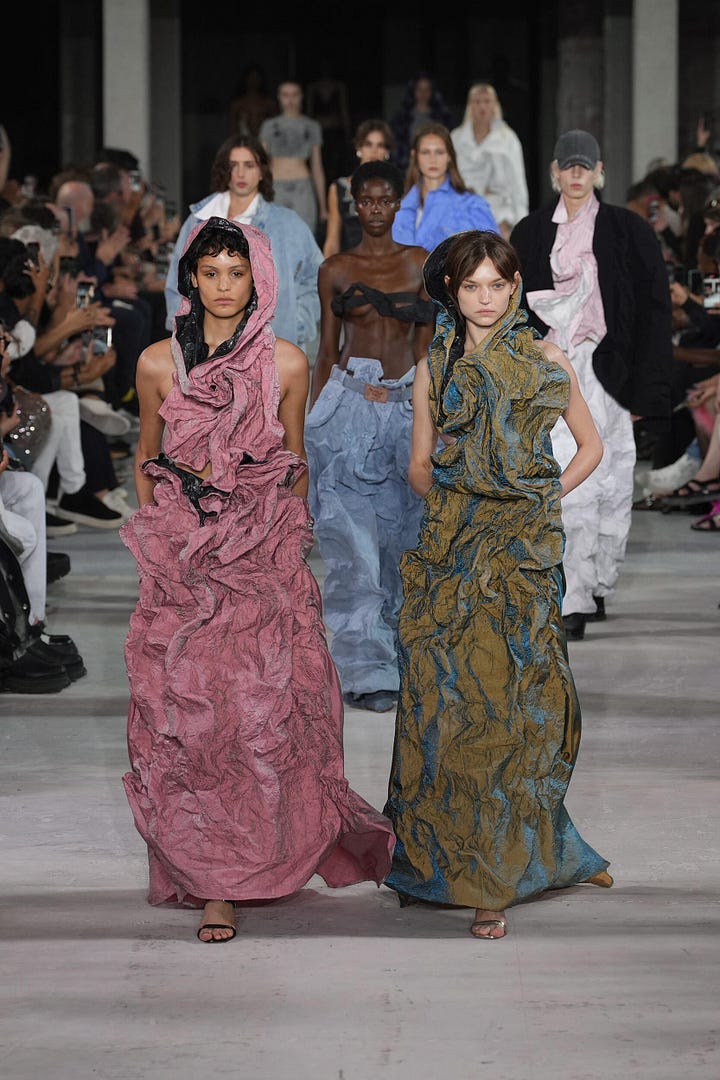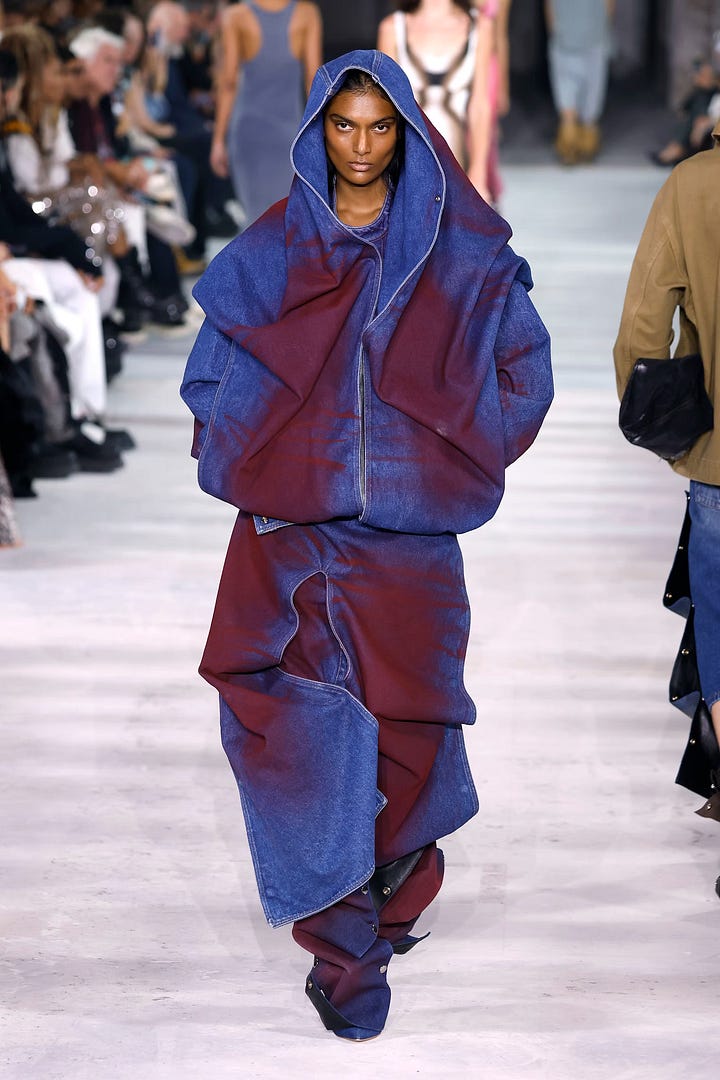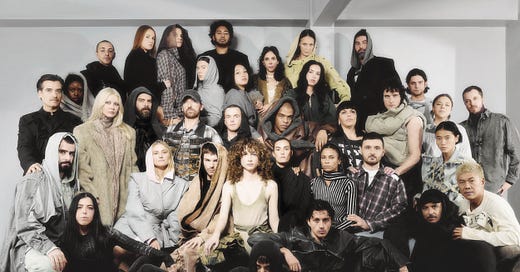Conversations about the instability of the fashion market and the gradual erosion of its artistic side are becoming increasingly common. For me, the closure of Y/Project stands as a perfect example of this unsettling trend.
Under the creative direction of Glenn Martens, Y/Project grew into a highly recognized and beloved brand among celebrities. Martens’ innovative, boundary-pushing designs elevated the label to new heights, earning him the creative director role at Diesel and the distinction of being one of Jean Paul Gaultier’s first couture collaborators. Yet despite its reputation and critical success, Y/Project faced mounting challenges. “Creative director Glenn Martens and chief executive Pascal Conte-Jodra both exited the brand as it struggled to find a buyer, and was forced to scrap its September runway show amid cash flow issues” (Business of Fashion, 2023)
While a brand is not always intrinsically tied to its creative director, Y/Project’s identity—deeply rooted in Martens’ avant-garde and experimental vision—may have been perceived as too niche for sustainable investment. After 14 years in the market, the brand was ultimately forced to close its doors, serving as a sobering reminder that critical acclaim and cultural influence do not always equate to financial success.
The Rise of Y/Project
Founded in 2010 by Yohan Serfaty and Gilles Elalouf, Y/Project began as a menswear label characterized by a dark, architectural aesthetic. However, following Serfaty’s passing in 2013, the brand’s future seemed uncertain—until Glenn Martens stepped in as creative director. Under Martens’ leadership, Y/Project underwent a dramatic transformation, expanding into womenswear and embracing a more playful yet conceptual approach that balanced deconstruction with wearable innovation.
Despite its critical acclaim and reputation for pushing boundaries, the brand faced significant financial challenges. After the death of owner Gilles Elalouf last June, Y/Project was placed in receivership in September, marking the beginning of its final chapter.
Martens redefined the brand’s identity, making it synonymous with experimental silhouettes, exaggerated proportions, and an uncanny ability to merge historical references with contemporary irreverence. Signature pieces, such as convertible trousers and asymmetrical dresses, showcased its transformative designs, attracting a celebrity following that included Rihanna, Kylie Jenner, and Dua Lipa.
The brand also achieved critical milestones, such as winning the ANDAM Prize in 2017, which catapulted its reputation globally. Collaborations with UGG and FILA further expanded its reach, demonstrating Martens’ ability to translate avant-garde ideas into commercial partnerships. Despite these accomplishments, Y/Project’s financial struggles became increasingly evident in recent years.
A Harsh Reality for Independent Brands
Y/Project’s closure underscores a harsh truth in today’s fashion industry: popularity and visibility don’t guarantee financial stability. Even though the brand consistently showed at Paris Fashion Week and was regularly featured in fashion editorials, it failed to secure the investors needed to sustain itself.


The fashion industry has always been a business, but the growing pressure to balance artistic innovation with commercial viability has pushed many independent brands to the brink. Avant-garde design, while celebrated by critics and tastemakers, often struggles to compete in a market that favors safe, easily marketable products.
This struggle has led to a homogenization of the fashion landscape, where many brands begin to look and feel alike, prioritizing profit margins over creativity. The closure of Y/Project raises critical questions about the future of independent, experimental fashion.
What’s Next for Y/Project’s Legacy?
As the industry bids farewell to Y/Project, it’s worth reflecting on the brand’s contribution to contemporary fashion. Under Martens’ direction, Y/Project redefined the boundaries of wearability and showcased the potential of conceptual design on a global stage.
However, this closure also serves as a stark reminder of the challenges facing small, independent brands in an increasingly competitive and profit-driven industry. The question remains: how can fashion preserve its artistic essence while adapting to the demands of a volatile market?
For now, the loss of Y/Project feels like the end of an era—a poignant example of the difficulties faced by brands that dare to take risks in a world increasingly hesitant to embrace them.





